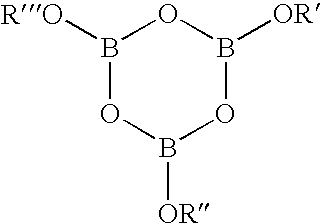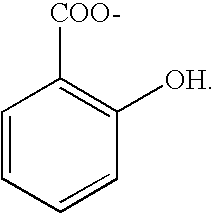Methods of ex vivo progenitor and stem cell expansion by co-culture with mesenchymal cells
a technology of stem cells and mesenchymal cells, which is applied in the field of ex vivo stem cell expansion methods, can solve the problems of not being able to express all markers specific for mesenchymal progenitor cells, and growing only marginally
- Summary
- Abstract
- Description
- Claims
- Application Information
AI Technical Summary
Benefits of technology
Problems solved by technology
Method used
Image
Examples
examples
[0454] Reference is now made to the following examples, which together with the above descriptions illustrate the invention in a non-limiting fashion.
[0455] Generally, the nomenclature used herein and the laboratory procedures utilized in the present invention include molecular, biochemical, microbiological and recombinant DNA techniques. Such techniques are thoroughly explained in the literature. See, for example, “Molecular Cloning: A laboratory Manual” Sambrook et al., (1989); “Current Protocols in Molecular Biology” Volumes I-III Ausubel, R. M., ed. (1994); Ausubel et al., “Current Protocols in Molecular Biology”, John Wiley and Sons, Baltimore, Md. (1989); Perbal, “A Practical Guide to Molecular Cloning”, John Wiley & Sons, New York (1988); Watson et al., “Recombinant DNA”, Scientific American Books, New York; Birren et al. (eds) “Genome Analysis: A Laboratory Manual Series”, Vols. 1-4, Cold Spring Harbor Laboratory Press, New York (1998); methodologies as set forth in U.S. Pa...
example i
Nicotinamide Enhances Expansion of Hematopoietic Stem Cells in Co-Culture with Mesenchymal Cells
[0466] Modulators of cell fate, such as nicotinamide, have been shown to enhance the proliferation of stem cells ex-vivo, while inhibiting their differentiation, allowing long term expansion of undifferentiated stem cells of various origins. In order to determine whether such modulators of cell fate can exert a similar effect on hematopoietic stem cells co-cultured with mesenchymal cells, mononuclear cells were grown ex-vivo in co-culture with a mesenchymal feeder layer, with or without the addition of nicotinamide (5 mM).
[0467] Tables 1-4 represent the results of four separate experiments, demonstrating the expansion of populations of undifferentiated hematopoietic stem cells in 3 week cultures of mononuclear cells co-cultured with mesenchymal cells. As the tables clearly demonstrate, addition of nicotinamide (5 mM) to the culture medium results in a significant synergistic increase in...
example 2
Nicotinamide Enhances Expression of CXCR4 in Hematopoietic Stem Cells in Co-Culture with Mesenchymal Cells
[0472] CXCR4 has been identified as the cell surface receptor for the stromal cell-derived factor (SDF)-1 (CXCL12), and it's expression has been shown to be important to engraftment and tissue homing of hematopoietic progenitors. Induction of CXCR4 expression in hematopoietic stem cells results in increased sensitivity to lower levels of SDF-1, increased migration of the cells to SDF-1, improved proliferation and survival of the hematopoietic stem cells in-vitro and in-vivo, and improved engraftment potential of the induced cells. Similarly, it has been shown that blockage of CXCR4 with specific antibodies prevents engraftment of hematopoietic stem cells (Brenner, et al Stem Cells 2004; 22:1128-33; Kahn et al, Blood, 2004; 103:2942-49; Peled et al, Science 1999; 283:845-48). In order to investigate the effect of modulators of cell fate on CXCR4 expression in hematopoietic stem ...
PUM
| Property | Measurement | Unit |
|---|---|---|
| density | aaaaa | aaaaa |
| concentration | aaaaa | aaaaa |
| concentration | aaaaa | aaaaa |
Abstract
Description
Claims
Application Information
 Login to View More
Login to View More - R&D
- Intellectual Property
- Life Sciences
- Materials
- Tech Scout
- Unparalleled Data Quality
- Higher Quality Content
- 60% Fewer Hallucinations
Browse by: Latest US Patents, China's latest patents, Technical Efficacy Thesaurus, Application Domain, Technology Topic, Popular Technical Reports.
© 2025 PatSnap. All rights reserved.Legal|Privacy policy|Modern Slavery Act Transparency Statement|Sitemap|About US| Contact US: help@patsnap.com



